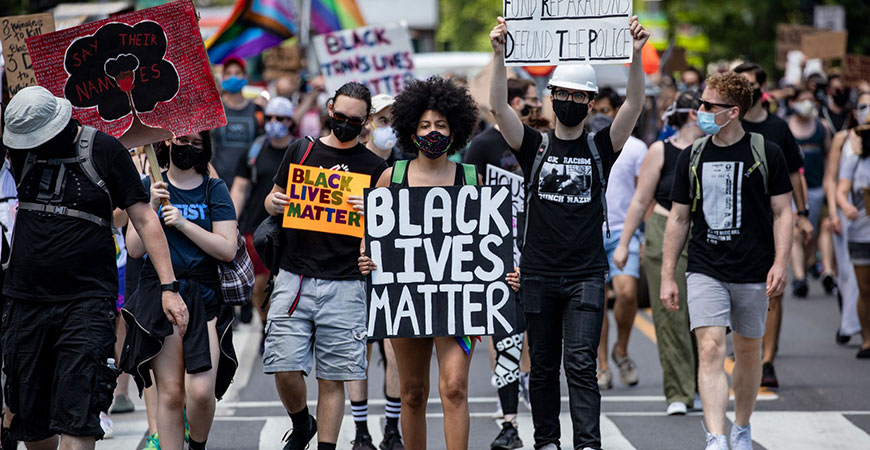
You know that warm, uplifting feeling you get when you see someone going out of their way to help other people? You might get goosebumps or even a tear in your eye, and something inside you might make you want to be like them, support others and try to be a better person.
That feeling isn't happiness, awe or pride. It’s not even love, although it is related. Until recently, that feeling didn't have a name in English. Now, it is known as “moral elevation,” a unique emotion linked with trust, compassion and a desire to help others.
But how much moral elevation would you feel if the kindly person were a member of a group you view as enemies?
A group of researchers led by UC Merced Department of Cognitive and Information Sciences Professor Colin Holbrook recently released results of a study on attitudes and biases and how they shape experiences of moral elevation during group conflict.
Their studies are the first to test if group conflict, whether a sporting event, political race or a full-blown war, can evoke strong feelings of moral elevation — at least for your side. The results support the hypothesis that group bias strongly shapes moral elevation when viewing opposing sides of an active conflict.
The researchers used the 2020 Black Lives Matter (BLM) protests and Back the Blue counter-protests as an opportunity to tap into genuine emotional reactions to a highly divisive conflict.
They conducted two large, online experiments while the protests were at their peak in 2020 and found overwhelming evidence that conservatives felt moral elevation when watching a video montage of fiery pro-police counter-protests, while progressives felt the same way when watching a closely parallel video of the BLM protests.
The more conservative the viewer, the more they felt moral elevation when viewing the counter-protests, and the less they felt elevation during the BLM protests. These emotional experiences were strongly linked with desires to increase police funding among conservatives, or to decrease police funding among progressives. This shows that moral elevation can be linked to opposite responses toward whichever direction the person thinks would be most helpful.
“Elevation is triggered by acts of kindness and altruism, and it motivates people to be more helpful and trusting,” Holbrook said. “This dynamic helps people, during conflict, to coordinate, trust and sacrifice so that they can survive, and their group can win. But both sides feel the same way.”
The researchers also found in prior studies that people feel elevation more intensely when they anticipate that other people will reciprocate and help them. For an evolutionary perspective, if no one around is likely to return the favor, it does not make adaptive sense to invest effort in helping. This may also explain why acts of kindness do not trigger as much elevation when they are performed by people you view as enemies.
How people feel about an event critically hinges on their attitudes toward those who are involved.
One of the keys to understanding the results of the study was understanding the difference in depictions between right-wing and left-wing media.
“Depending on their partisan disposition, Americans were seeing a different window on reality, including the BLM protest movement,” he said. “There was, and is, a clear ‘Us vs. Them’ dynamic at play.
“Liberal media and political figures portrayed the protests as an historic, mostly peaceful, righteous effort to fight racial inequality in policing.
“Conservative media and politicians portrayed the protests, which studies confirm were overwhelmingly peaceful, as mostly violent and destructive. They made the protesters out to be opportunistic criminals. It is important to bear the impact of media in mind — had the protests been covered more evenly, and less sensationally, conservatives may have been more elevated when millions of people of diverse backgrounds went out of their way to protest for racial equality,” Holbrook said.
Holbrook and his colleagues detail their findings in a paper published today in the open-access journal Royal Society Open Science.
Even though the researchers used the 2020 protests and counter-protests to test their predictions regarding group bias and moral elevation, Holbrook said the theory applies to any group conflict.
“We humans are an amazingly cooperative species. By and large, we try to help each other, and no one wants to be ‘the bad guy.’ Whether it be groups like ISIS or nation-states that attack other countries, such as the U.S. and Iraq or Russia and Ukraine, propagandists frame acts of aggression as morally justified and even benevolent.
“They do this because humans are profoundly motivated by moral emotions and their sense of rightness and are generally not willing to inflict unjustified harm,” Holbrook said. “Although moral emotions can fuel terrible conflict when people are led to view their side as righteous, the same power can bring people together if they understand cooperation to be the moral way forward.”

